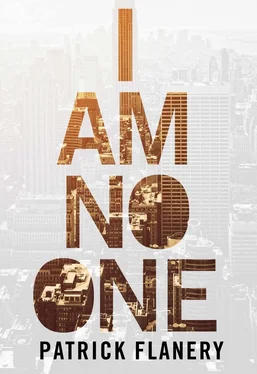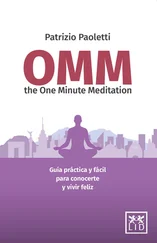For a couple weeks Jayanti came to class, although she still did not seem very well prepared and the essays she had written sounded as though they might have been the work of someone else. Then, in the final two weeks of term, as we were approaching the Christmas holidays, she failed to turn up for a tutorial and failed to write to explain her absence, so in response I wrote a firm but professional email, again copying the Senior Tutor, to make note of her absence and remind her once more that tutorials were compulsory and illness required a doctor’s note to be excused.
That was when the real trouble began. Jayanti replied within minutes, accusing me of lying, claiming she had come to the tutorial but found my rooms empty, that she knocked and knocked on the door and called my name but no one had answered. This was a complete fabrication, or else she was herself mistaken and had gone to the wrong rooms, or perhaps was delusional, I began to think. She claimed I had been ‘riding her hard’ all semester, that I was belittling and high-handed and patronizing and any number of other things, all unfounded accusations. She concluded her email by threatening to throw herself off the roof of the College or to jump from Folly Bridge into the Thames. Because she had copied her message not only to the Senior Tutor but also to the College Principal, the Domestic Bursar, and to a number of my colleagues in the History Faculty, an investigation was opened into my behavior, which involved the lengthy interviewing of all my students. To my great satisfaction, all my other students reported that Jayanti was lying, that I was demanding but also a fair and respectful teacher and that we had all been sitting in my rooms during the tutorial in question and not once had anyone knocked on the door, let alone called out my name. The investigation was closed before the end of that Michaelmas term but I spent the holidays — the vac as the British call it, which I always heard as ‘vacuum’, an association not entirely misplaced for me in my first year at Oxford when I did not return to the US — alone, whiling away those dark weeks in my rooms, or failing to find occupation in a city that largely shuts down for Christmas, or going, out of despair, to spend a few expensive days in London visiting the galleries and attending concerts. I had never felt so isolated in my life. I missed my wife and daughter. I missed my mother and my late father. I wondered why I had ever come to Britain and why I had not had the sense to go home for Christmas, even if that would have meant sleeping on the couch of a friend in New York or spending it with my mother at her house in Rhinebeck. I did not make the same mistake ever again, and always thereafter, whatever the cost, flew back to New York for Christmas.
My experience with Jayanti was so upsetting I almost quit, there and then, because despite the problems I had faced at Columbia, and they were in their own way unfounded, I had never before been accused of misconduct by a student, never been lied about so outrageously, nor had anyone threatened to commit suicide because of my teaching. This was, I think now, the most distressing aspect of the affair, that a young woman’s psychology was so troubled she would threaten to kill herself. The College authorities, to their credit, handled the matter with care, placing Jayanti on academic probation. She left the university without finishing her degree, but remained in Oxford living with her boyfriend, who was also in the College, and I continued to see her throughout my years there, often at the most inopportune moments, so that it began to feel as though she might be stalking me, trying to get revenge for the part I had played in the stalling of her higher education.
Perhaps the addresses for those messages that passed between Jayanti and me were now before me on the bed, on one of those five thousand sheets of paper, probably near the bottom of the pile, though as I turned them over they became a lapping sea of black on white and any order that might have been was lost. It hardly mattered; I knew what was before me, what the pages represented, and knew that someone, perhaps very close at hand, wanted me to know I was being watched.
A large part of growing up in society, which is to say growing up in any kind of community, involves acculturating oneself from infancy to the experience of being observed. One might go so far as to say that the human condition is one of observation. Not to be observed is, in fact, regarded as a crime, the crime of parental neglect or abandonment. The unobserved child becomes the abandoned child, the wild child, the girl or boy raised by wolves, discovered often in adolescence when some attempt is made forcibly to acculturate them to being monitored, to observation, to the modes of behavior a given society requires for a person of whatever age in order to remain an accepted member of the community. I think back to the ways in which I became aware of being attended to as a child, the means by which I was conscious of my parents in the first instance paying attention to what I was doing, observing me and punishing me if I did something they regarded as inappropriate or simply ‘naughty,’ though when I say punishment I should be clear my parents did not believe in corporal chastisement: I was never hit or spanked or slapped or, as the British would say, smacked . As punishment my parents would send me to my room. Being a sociable child not readily given to reflection, this was quite effective chastisement, although it was always couched in reasonable terms: ‘Jeremy, please go to your room and think about what you have done and come out when you are ready to behave like a civilized human being.’ In my rage or tantrum, galled that whatever I had done was regarded as naughty or uncivilized, I would stomp off to my room, close the door — I learned quickly not to slam it, for this would increase the punishment to an active form of correction, such as having to polish all the silver or pull every weed in my mother’s flowerbeds or collect every twig or branch that had fallen on the lawn — and sit at my desk drawing pictures or lie on my bed, hyperventilating at first, but then reading to calm myself. As I read or drew, my thoughts would wander to whatever I might have done to incur this punishment and I remember on occasion being astonished that my parents had discovered the wrong I had committed because it might have seemed like the kind of thing no one would notice at the time.
The process of learning that one’s actions are observed, that if I arranged snails on the kitchen sink my mother would immediately know I had put them there and that they had not, as I believed she might think, crawled there themselves, meant that by degrees I learned to self-correct, or to monitor my own behavior and act within the boundaries of what was regarded in my home as ‘civilized.’ By chance and chance alone my parents had a quite narrow sense of what was civilized, at least compared to the wider world, so by the time I went to school I was recognized by teachers as a ‘good boy,’ and because this was gratifying and I responded positively to such attention and reinforcement, I continued to follow the rules and behave well, lest I become a ‘bad boy’ or a ‘naughty boy.’
School expanded the universe of observation and monitoring. It was no longer just a matter of my behavior being attended to: the products of my intellectual and creative efforts were subject to analysis, critique, grading, etc. This process of having my work assessed and scrutinized compounded my desire to be both a ‘good boy’ and a ‘good student.’ I knew that whatever I wrote or drew or painted in class would be looked at by someone else and therefore, unlike some of my peers who for whatever reason did not feel the same impetus, I tried to perfect everything I did, to be as accurate as I could be, always to know the answer, to draw and paint objects, people, and animals in ways that aspired to verisimilitude, even perhaps to realism, though I did not know the meaning of that word until I went to college.
Читать дальше












